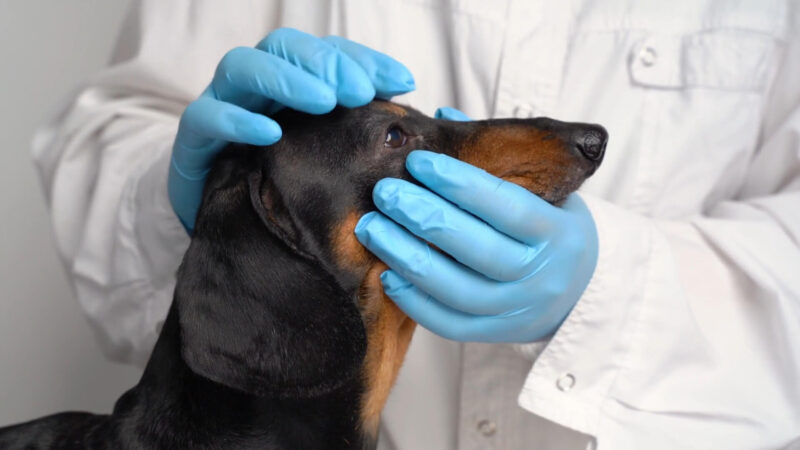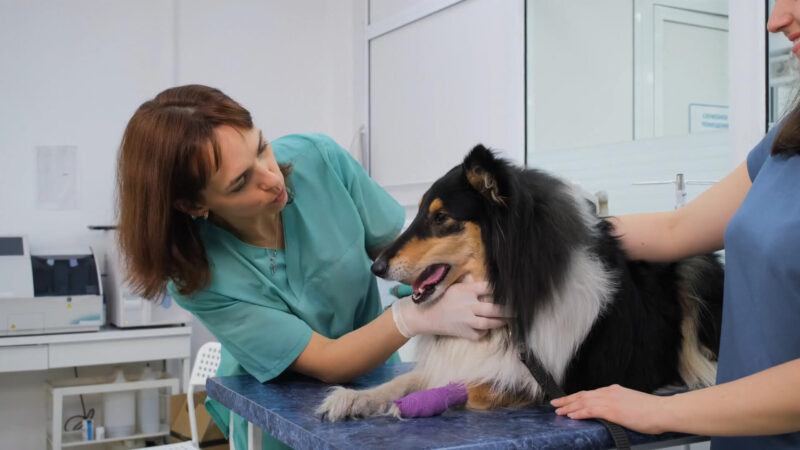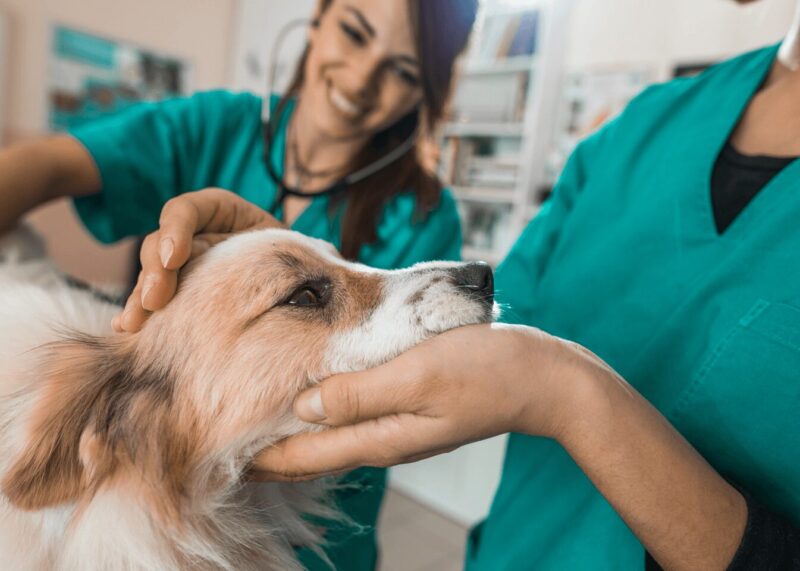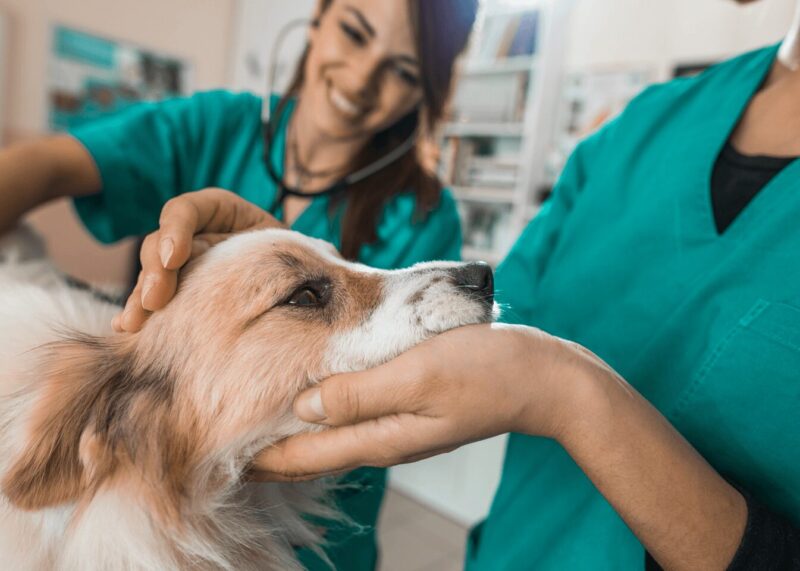
-
 Stefan Mihajlovic
Stefan Mihajlovic
- Published:
- Updated: March 12, 2024
- Category: Dog Specific Care, Medication and Treatments, Pet Health and Care
Share Post:
When it comes to pet health, the use of human medications for animal ailments often raises questions and concerns.
Phenergan, known for its antihistamine properties, is one such medication that dog owners consider for their pets.
Addressing the core question – can dogs safely take Phenergan? – today, I will talk about its usage, dosage, potential benefits, and associated risks.
Key points:
- Knowing Phenergan’s Role: Readers will learn about the uses and functions of Phenergan in treating conditions like allergies, motion sickness, and anxiety in dogs.
- Dosage and Administration Guidelines: The blog provides insights into the correct dosage of this medication for dogs, emphasizing the importance of veterinary guidance.
- Recognizing Potential Side Effects: It highlights the potential side effects and risks associated with Phenergan, including central nervous system depression and interactions with other medications.
- Alternatives to Phenergan: Readers will explore alternative treatments and therapies for conditions that this medication addresses, like natural remedies and behavioral therapies.
- Legal and Ethical Aspects: The post discusses the legal implications and ethical responsibilities of pet owners when considering prescription medications like Phenergan for their dogs.
Phenergan and Its Uses in Dogs

Phenergan is a first-generation antihistamine notable for its sedative and antiemetic effects. Its active ingredient, promethazine, works by blocking histamine and acetylcholine in the body, leading to its wide-ranging effects.
Common Uses in Canines
In veterinary medicine, Phenergan finds its use in treating dogs with allergies, hypersensitivity disorders, motion sickness, or anxiety.
It acts by alleviating symptoms like itching, nausea, and anxiety, providing comfort to distressed pets.
Vet Approval
Given its powerful effects, Phenergan must only be used under veterinary supervision.
Self-medicating pets without expert guidance can lead to severe complications, making vet approval crucial.
Determining the Right Dosage

The standard dosage for dogs is typically around 1 mg for every 2 pounds of body weight, administered twice daily.
However, this is a general guideline, and the exact dosage should always be determined by a veterinarian.
Administration Tips
Administering Phenergan to dogs requires precision. The medication can be given orally, but ensuring the correct dosage and frequency as prescribed by the vet is essential.
Monitoring and Adjustments
Post-administration, close monitoring is necessary. Depending on the dog’s response, the vet might adjust the dosage or frequency for optimal benefits.
Potential Benefits of Phenergan for Dogs
- Allergy Management: For dogs suffering from allergies, Phenergan can significantly reduce symptoms like itching and inflammation, improving their quality of life.
- Easing Motion Sickness: Canines prone to motion sickness can benefit from Phenergan’s antiemetic properties, making travel more comfortable for them.
- Calming Effect for Anxious Canines: The sedative nature of Phenergan can be beneficial for high-strung or anxious dogs, aiding in their relaxation.
Risks and Side Effects
- Central Nervous System Depression: One of the significant risks of Phenergan is its potential to cause central nervous system depression, leading to lethargy or coordination issues.
- Dry Mouth and Other Side Effects: Dry mouth, increased heart rate, and potential respiratory depression are other side effects that dog owners should be aware of.
- Importance of Monitoring: Due to these risks, close monitoring of the pet after administering Phenergan is vital to ensure their safety and well-being.
Interactions with Other Medications
Potential Drug Interactions
Phenergan can interact negatively with various medications, such as sedatives, anticholinergics, and certain painkillers.
Importance of Full Disclosure
Dog owners must disclose all the medications and supplements their pet is taking to the veterinarian.
This ensures safe use and reduces the risk of adverse interactions.
Regular Vet Check-ups
Regular vet check-ups are necessary to monitor the pet’s response and adjust medications as needed.
Consulting with a Veterinarian
- Discussing Specific Needs: Each dog’s health situation is unique. Discussing the specific case with a veterinarian is crucial for determining if Phenergan is appropriate.
- Professional Evaluation: Veterinarians can evaluate the pet’s overall health, considering factors like age, weight, breed, and current medications before prescribing Phenergan.
- Following Professional Guidance: Following the vet’s guidance on dosage, administration, and monitoring is essential for the safe use of Phenergan in dogs.
Considerations for Phenergan Use in Dogs
Evaluating the Necessity
Before administering this medication, it’s crucial to evaluate if the medication is indeed necessary.
Vets consider factors like the severity of symptoms and previous responses to treatments.
Knowing the Health History
A thorough understanding of the dog’s health history is vital. Conditions like liver disease, heart problems, or respiratory issues can influence the decision to use Phenergan.
Weighing Benefits Against Risks
The decision to use Phenergan involves weighing its potential benefits against possible risks. This balance is essential for responsible pet care.
Safe Handling and Storage of Phenergan
Proper Storage
Storing this medication correctly is vital. It should be kept in a cool, dry place, away from sunlight and out of reach of children and pets.
Handling Precautions
When handling Phenergan, it’s important to avoid contamination. Wash hands before and after administering the medication.
Disposal of Expired Medication
Expired or unused Phenergan should be disposed of safely, following the guidelines provided by the veterinarian or local regulations.
Alternative Treatments and Therapies
Exploring Natural Remedies
In some cases, natural remedies or alternative treatments might be suitable for conditions like allergies or anxiety in dogs.
Behavioral Therapies
For anxiety-related issues, behavioral therapies can be an effective alternative or complement to medications like Phenergan.
Dietary Adjustments
Adjusting the dog’s diet, especially for allergy management, can sometimes reduce the need for medications.
The Role of Continuous Monitoring and Follow-up

Regular Health Check-ups
Scheduling regular health check-ups with the vet ensures the ongoing effectiveness and safety of Phenergan treatment.
Adjusting Treatment Plans
Based on the dog’s response, the veterinarian may adjust the treatment plan, including changing the dosage or medication.
Keeping a Symptom Diary
Maintaining a diary of the dog’s symptoms and behaviors can provide valuable insights for the vet during follow-ups.
Phenergan in Special Cases
- Puppies and Senior Dogs: Special consideration is needed when using Phenergan in puppies and senior dogs, as they may be more sensitive to its effects.
- Breeds with Specific Sensitivities: Certain canine breeds may have specific sensitivities or predispositions that affect the suitability and dosage of Phenergan.
- Pregnant or Nursing Dogs: The use of Phenergan in pregnant or nursing dogs requires extra caution and is typically avoided unless absolutely necessary.
FAQs
Can Phenergan be used for treating skin allergies in dogs?
Yes, this medication can be used to treat skin allergies in dogs, but only under veterinary supervision to ensure safety and appropriate dosing.
Is it safe to give Phenergan to a dog before a long car ride to prevent motion sickness?
This medication can be used to prevent motion sickness in dogs during car rides, but a vet should determine the suitability and dosage based on the individual canine’s health.
How quickly does Phenergan start working in dogs after administration?
It typically begins to take effect within 1-2 hours of administration, but this can vary depending on the dog and the condition being treated.
Can Phenergan cause appetite changes in dogs?
Yes, changes in appetite are possible side effects of this medication in dogs, along with other symptoms like lethargy or dry mouth.
If my dog has a history of seizures, is Phenergan safe to use?
Dogs with a history of seizures should only be given this medication after careful evaluation by a veterinarian, as it may exacerbate seizure conditions.
Are there any specific breeds that should avoid Phenergan?
Certain breeds with known sensitivities to medications, like Collies, might be more susceptible to side effects from this medication. Always consult a vet before administering it to any breed.
Final Words
While Phenergan can be a beneficial medication for certain conditions in dogs, its use requires careful consideration and professional guidance.
The right dosage, awareness of potential side effects, and regular veterinary consultation are key to ensuring the safe and effective use of Phenergan in canine health care.
For more advice on your dog’s care, check out our article regarding blackheads and how to prevent and treat them in dogs to ensure your four-legged friend’s health and happiness.
Related Posts:











